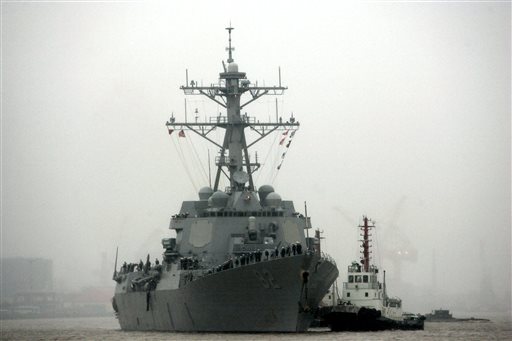-
Tips for becoming a good boxer - November 6, 2020
-
7 expert tips for making your hens night a memorable one - November 6, 2020
-
5 reasons to host your Christmas party on a cruise boat - November 6, 2020
-
What to do when you’re charged with a crime - November 6, 2020
-
Should you get one or multiple dogs? Here’s all you need to know - November 3, 2020
-
A Guide: How to Build Your Very Own Magic Mirror - February 14, 2019
-
Our Top Inspirational Baseball Stars - November 24, 2018
-
Five Tech Tools That Will Help You Turn Your Blog into a Business - November 24, 2018
-
How to Indulge on Vacation without Expanding Your Waist - November 9, 2018
-
5 Strategies for Businesses to Appeal to Today’s Increasingly Mobile-Crazed Customers - November 9, 2018
Hague court agrees to take up South China Sea row
In a legal setback for Beijing on Thursday, the Hague-based Permanent Court of Arbitration ruled that it has jurisdiction to hear a few territorial claims the Philippines has filed against China over disputed areas in the South China Sea.
Advertisement
While rejecting the tribunal’s decision, Lu said China’s sovereignty and rights in the South China Sea are grounded in history and protected under global laws including the UNCLOS.
“The reason the United States is interested here is that we’re not making claims on those land features there but we certainly do have a financial interest and a broader strategic interest in ensuring that freedom of navigation and the free flow of commerce continues unimpeded in the South China Sea”, Earnest told a news conference.
Another U.S. official said the tribunal’s decision undercut China’s claims under the so-called nine-dashed line that takes in about 90 percent of the 3.5 million sq km (1.35 million sq mile) South China Sea on Chinese maps.
Regional security analysts say China is ambiguous about precisely what it claims as territorial waters around the islands and reefs in the South China Sea. After all, the United States warship’s sailing into the South China Sea was aimed not so much at asserting freedom of navigation in these waters as it was at impressing Washington’s Asia Pacific allies.
“The result of the ruling will by no means affect China’s sovereignty and rights on the South China Sea”, Vice-Foreign Minister Liu Zhenmin said on Friday at a media briefing.
“We look forward to the Tribunal’s further hearing on the merits”, it added.
The Philippines and China are among its 117 member-countries.
The commission was created by the U.S. Congress in 2000 to investigate and submit an annual report on the national security implications of trade with China.
Given US reticence to afford China the influence that Beijing feels that it deserves, Chinese officials have started to set up alternative frameworks.
China has refused to participate in the arbitration and stressed it has historic rights over the sea, which is believed to be rich in marine and mineral resources. When the US called for China and other claimants to halt land reclamation a year ago, Beijing appeared to double down, building airstrips and other facilities that could have military uses. The USA refuses to recognize the man-made islets as deserving of sovereign territory status.
Wu said it is a well-known fact and the country’s consistent stance that China has “irrefutable” sovereignty over the Nansha Islands and its adjacent waters.
Advertisement
His said his overall strategy on the South China Sea issue from Taiwan’s perspective is to call for shelving differences and sharing economic benefits, which would include developing the Taiwan-held island of Taiping into a tourist attraction.





























